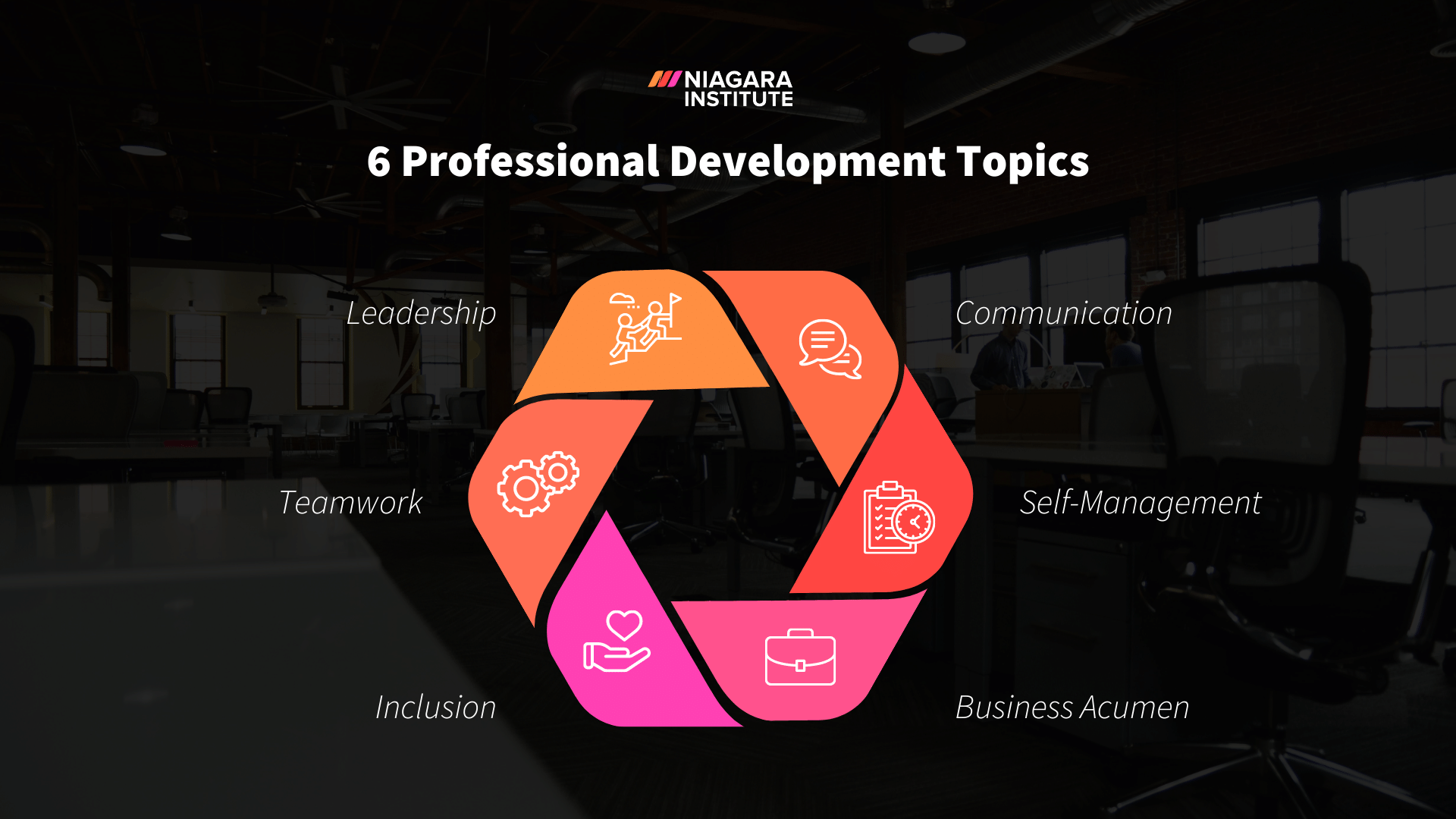19 min read
10 People Management Skills At The Workplace (20+ Statistics)
Imagine a workplace where every employee feels valued, motivated, and empowered to do their best work. This ideal scenario doesn't happen by chance;...
2 min read
 Michelle Bennett
:
Aug 18, 2022 5:30:00 AM
Michelle Bennett
:
Aug 18, 2022 5:30:00 AM

Up until 2020, the level of executive support and allocated budget for professional learning and development had been on the rise. But then COVID-19 hit, and nearly half of the respondents in a Deloitte study experienced cuts in their professional development and learning budgets. In fact, three out of every four organizations surveyed had their budgets in this area cut by more than 20%.
While this may have been necessary at the time, two years have passed, and we are no longer in survival mode. Rather, we have moved onto the phase in which we must adapt to the new normal.
To do this, leaders and individual contributors at all levels will require professional development to fill the skills gaps that have appeared over the last couple of years and meet the demands of the new hybrid workplace.
In the case that you are ready to do exactly that, we recommend that you focus on these 6 topics.

In a recent survey of 14,000 US employees, Gallup found that 39% were working exclusively remotely, 42% had a hybrid arrangement, and 19% were working fully in person. In addition to the challenges and demands that this has put on leaders, they are also contending with a workforce whose relationship with and expectations of work have significantly changed from what they once were.
Not to mention, the challenges leaders at all levels always have and always will contend with still exist, such as performance management and conflict resolution.
This is to say that leaders need the support, training, and tools to adapt their leadership style and practice to this new environment. Here are 8 specific topics for competency development for leaders.
Over a quarter of people in a Project.co study said that the way businesses communicate (both internally and with customers) has deteriorated since 2020. This is concerning given the known consequences of poor communication in the workplace, such as increased stressed, reduced morale, lower productivity, and missed goals/objectives. It also highlights why communication is essential to any professional development plan, regardless of one’s role, tenure, or industry.
Self-management refers to one’s ability to motivate, discipline, and encourage themselves. It means being able to do your work - and do it well - with minimal supervision or reliance on your direct leader. As you might imagine, this is arguably more important now, given many employees' greater level of autonomy due to the permanent shift to remote and hybrid work.
A critical aspect of self-management is self-leadership, which involves setting personal goals, maintaining focus, and taking initiative to ensure continuous growth and productivity.
Today’s workplace is more interconnected than ever, which means every action or decision could potentially impact another team or department. Fortunately, improving your business and financial acumen as part of your professional development efforts can help you do so successfully, as well as get ahead in your career. Areas to focus on include financial acumen, strategy, data analytics, and project management, just to name a few.
It’s imperative that your professional development plans include diversity and inclusion training. Everyone needs the knowledge, awareness, and tools to appreciate individual differences, acknowledge their own conscious and unconscious biases and build an inclusive environment that makes everyone feel included, heard, and valued. In fact, when this happens, it has been found that decision-making, productivity, innovation, and problem-solving all improve.
According to a survey by Microsoft, employees today are on twice the amount of teams they were five years ago and spend roughly 50% more of their time on collaborative work. In light of this, one’s teamwork and collaboration skills can truly make or break one’s experience and success at work. In fact, those with strong teamwork and collaboration skills have been found to be happier, more productive, stronger problem solvers, more innovative, less burnt out, more creative, and less likely to make mistakes.

19 min read
Imagine a workplace where every employee feels valued, motivated, and empowered to do their best work. This ideal scenario doesn't happen by chance;...

6 min read
Things are not the way they used to be. In today's rapidly evolving world, where there is a new AI breakthrough seemingly every hour, where...
![[Infographic] Leadership Training Topics Worth Investing In](https://www.niagarainstitute.com/hubfs/Leadership%20Training%20Topics%20People%20Leaders%20Will%20Need%20in%20the%20Next%20Year%20%281%29.png)
6 min read
Over the past few years, we have experienced unprecedented volatility, uncertainty, and change. People leaders, in particular, needed to be...